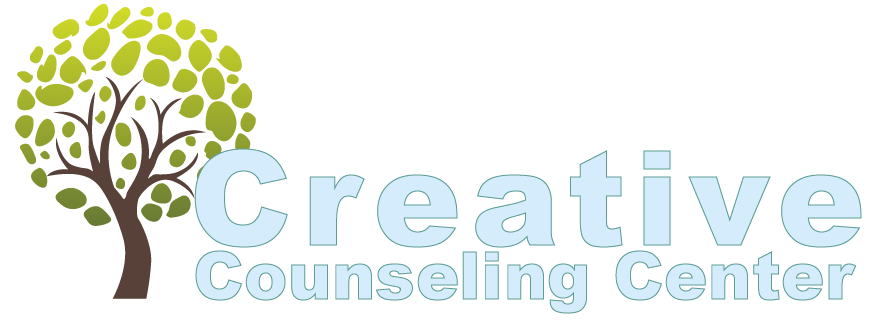The Power of Positive Thinking: Can You Think Your Way Out of Depression?
Depression feels like being stuck in a box that you can’t get out of – -a dark place where you feel low, such that even simple tasks may be difficult. You feel alone.
If you’ve ever struggled with depression, you probably know the difficulties brought on by this pervasive mental illness.
Although popular culture often depicts depression as simply “being down” or a little bit unmotivated, the reality is that depression is a serious mental condition that often requires the support of a licensed mental health professional.
The NIMH describes depression as a common, but serious, mood disorder that causes severe symptoms affecting how you feel, think, and handle daily activities.
Common symptoms of depression include:
• A persistent, sad, anxious, or empty mood
• Feelings of hopelessness and pessimism
• Irritability
• Feelings of guilt, worthlessness, or helplessness
• Loss of interest in pleasurable activities
To be diagnosed, these symptoms must be present for at least two weeks.
What Is Positive Thinking?
The field of positive psychology was officially created in 1998 by Dr. Martin Seligman, an American psychologist. In his memoir, Seligman describes a moment when he and his young daughter were weeding the garden together and she remarked, “If I can stop whining, you can stop being such a grouch.”
The psychologist noticed that he behaved just as she described, a grouch, and he began to consider what might happen if he emphasized well-being and positive thoughts rather than the unhappiness that seemed to define so many lives–including his own.
Examples of Tools that Support Positive Thinking
So, what are some tools for positive thinking that may improve one’s mental state?
• Keeping a gratitude journal – just note one item of gratitude each day, no matter how big or small
• Doing simple acts of kindness for others
• Practicing self-love meditation and mindfulness
• Using creative visualization to imagine oneself in a different or better scenario or state of mind
The idea is to focus on things that contribute toward increasing happiness and well-being and encouraging one to seek out the positive. What we focus on has the potential to expand. Therefore, the idea is if we can focus even just a little on the positive, then positive thoughts have a greater opportunity to multiply. The goal is to have more instances of positive thoughts than negative, and eventually over time, to replace the negative with the positive.
Does It Work for Depression?
Studies show that positive thinking can be helpful in treating mild to moderate depression. A 2017 study looked at the effectiveness of a guided self-help program designed to address mental well-being, anxiety, and depressive symptoms by focusing on six core “well-being processes.” These six core processes included positive emotion, use of strengths, optimism, self-compassion, resilience and positive relations.
The study showed that subjects who utilized the self-help program improved significantly more than the control group on all six processes, with notably pronounced improvement for positive relations and self-compassion. This suggests that both positive relations and self-compassion might be key aspects of promoting well-being.
Positive Thinking While Receiving Support from a Professional
Depression, whether mild or severe, can seriously impair one’s quality of life. It seems positive thinking can’t hurt when tried alongside the work you’re doing with a therapist to overcome depression. By utilizing positive psychology and getting professional help, you’ll maximize your chances of not only healing, but of learning to thrive as well.
If you’re wondering whether the support of a therapist or counselor along with positive psychology tools would benefit you or a loved one, request a free consultation by completing the brief form below. Someone from our team will reach out and after a conversation with you about your circumstance, we will be able to determine if our practice is a good fit and which therapist might be best equipped to support you or your loved one.
Contact Us
We will get back to you as soon as possible.
Please try again later.

ABOUT THE AUTHOR
Teri Karjala is a Licensed Professional Counselor & Marriage and Family Therapist. She is the founder and Executive Director of Creative Counseling Center, LLC. Working in the field since 1999, Teri and her team of therapists specializes in counseling for those who have experienced trauma. They work with children as young as age 2, as well as teens and adolescents, adults, seniors, families, and couples.
REQUEST A FREE CONSULTATION
If you have questions about counseling, would like to find out if counseling could help you or a loved one, or are interested in learning more about our services, just complete the brief form below to request a Free Phone Consultation. A member of our team will contact you shortly. After a brief conversation, we'll determine together whether our practice is right for you and which therapist may be best suited for your specific circumstance.
Finding the right therapist, one you click with, is less about the therapist's experience and qualifications and more about the therapist's personality. So let's talk. Let us match you with a therapist you have a high likelihood of clicking with.
Fields marked with an * are required.
Contact Us
We will get back to you as soon as possible.
Please try again later.
GET SOCIAL WITH US
CONNECT WITH US
PHONE
EMAIL US
ADDRESS
6021 South Syracuse Way, Suite #216
Greenwood Village, CO 80111
OFFICE HOURS
Monday-Thursday: 8:30am-8pm
Friday: 12pm-5pm
Saturday: 12pm-4pm



